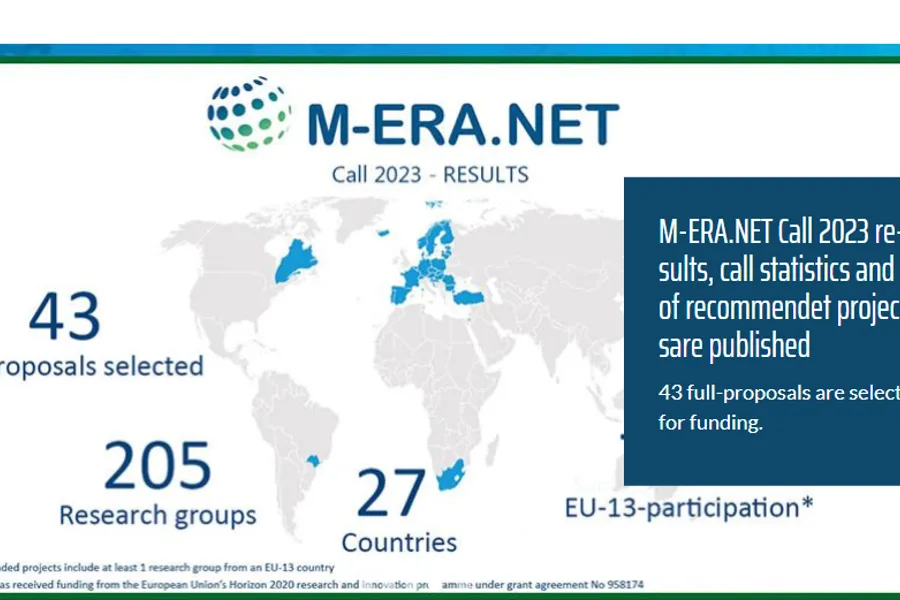New grant
MRCRM affiliated researchers receives EU funding for Advanced Burn Wound Healing project
M-ERA.NET has selected 43 projects for funding, including the Cellu4Heal project led by Kamal Mustafa and Stian Kreken Almeland. This project aims to develop a biodegradable matrix and delivery system using mesenchymal stem cells to treat severe burn injuries. It seeks to improve outcomes for patients by accelerating wound healing and reducing long-term complications and mortality rates.

M-ERA.NET, an EU-funded network established to enhance coordination of European research programs in materials science and engineering, has recently announced the selection of 43 full proposals for funding out of 382 pre-submissions in their 2023 call.
Among these 43 full proposals, only 5 projects are recommended for funding under the Call Advanced materials and technologies for health application. The Cellu4Heal project is one of these 5 projects. The project is led by Kamal Mustafa from the University of Bergen (UiB) and Stian Kreken Almeland from Haukeland University Hospital and UiB, together with collaborators at RISE PFI (Trondheim, Norway), Alginor Biorefinery As (Haugesund, Norway), University of Helsinki (Finland) and National University of Science and Technology (Romania).
The M-ERA.NET has selected the Cellu4Heal project to be recommended for co-funding with 1,006,950 EURO by the Research Council of Norway, the Research Council of Finland and the Research Council of Romania, for a duration of 36 months.
The Cellu4Heal project aims to develop and validate an advanced biodegradable matrix and delivery system for treatment of severe burn injuries with mesenchymal stem cells (MSCs). This initiative responds to the urgent need for improved treatment of patients with severe, life-threatening burn injuries who are at risk for long-term complications and morbidity due to their extensive wounds and prolonged healing.
The regenerative capabilities of the innovative MSC-containing Cellu4Heal matrix have the potential to accelerate burn wound healing, reduce inflammation and counteract scarring. As a result, the matrix holds promise for reducing mortality and morbidity rates associated with severe burn injuries, which could mark a significant advancement in burn wound management and impact the patient’s quality of life.
The funding is linked to Stian K. Almeland’s and Cecilie Bredrup’s MRCRM project “Development of Precision medicine – using stem cells for wound healing”, which focuses on the advancing wound care with MSC-based therapies. Other people involved in the project will be Samih M. Ahmed and Astrid B. Jenssen.
Relevant links:
Results_of_Call_2023.pdf (m-era.net)
Using stem cells for wound healing - Helse Bergen HF (helse-bergen.no)
More information:
Advanced degradable nanocellulose-based matrix for stem cell differentiation and burn wound healing.
Summary: Advanced degradable nanocellulose-based matrix for stem cell differentiation and burn wound healing
Rationale: Patients with severe, life-threatening burn injuries are at risk of long-term complications and morbidity due to their extensive wounds and prolonged healing. Recent developments in regenerative medicine suggest that the administration of mesenchymal stem cells (MSCs) may have therapeutic potential in the treatment of these wounds. Further, an optimal delivery system for MSC therapy is urged.
Objectives: Our aim is to develop and validate a novel biodegradable matrix and delivery system for MSCs in the treatment of severe burn injuries.
Potential applications: Cellu4Heal matrix has the potential to shorten the healing time of burn wounds and reduce inflammation and scarring, thereby reducing the patient’s susceptibility to wound infections and complications.
Impact and potential benefits: Cellu4Heal matrix can aid the healing of severe burn wounds, reducing associated mortality and morbidity, minimizing the need for re-operations, and consequently impacting the quality of life of these patients.





